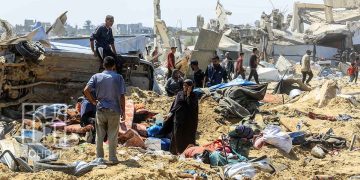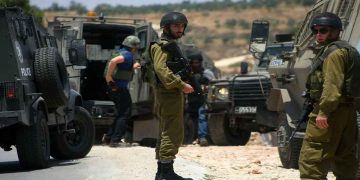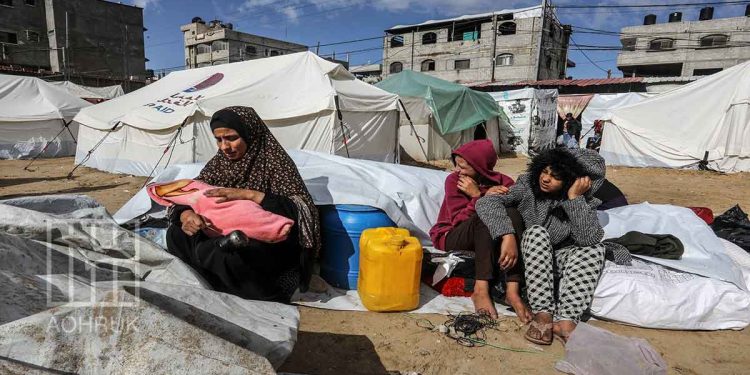The United Nations Relief and Works Agency for Palestine Refugees (UNRWA) has announced that approximately 75,000 displaced people in the Gaza Strip are sheltering in over 100 UN-run buildings, despite the majority of these facilities being damaged by Israeli bombardment and severely overcrowded, amid harsh humanitarian conditions.
In a post on X, UNRWA described the situation inside these shelters as catastrophic, citing a severe shortage of water, food, and basic supplies. The agency warned of deteriorating health conditions and the spread of disease due to overcrowding and poor sanitation.
Despite limited resources, UNRWA confirmed that its teams continue to provide urgent humanitarian aid and called on the international community to take immediate action to protect civilians and improve the rapidly deteriorating humanitarian situation in the Strip.
The agency further noted that 90% of Gaza’s population is suffering from malnutrition—a grave indicator of the depth of the crisis, which has persisted for months due to siege and sustained bombing.
What is unfolding in Gaza is not merely a humanitarian crisis; it constitutes a grave violation of international humanitarian law, which obligates parties to a conflict to distinguish between civilian and military targets. The law also strictly prohibits the targeting of UN humanitarian and educational facilities or depriving populations of essential needs.
The continued bombardment of civilian areas and buildings sheltering displaced persons, coupled with the blockade on food, water, and fuel, amounts to collective punishment, which is prohibited under the Geneva Conventions. This poses an immediate threat to the lives of hundreds of thousands of civilians, particularly children, women, and the elderly.
The deteriorating health conditions in UNRWA-run shelters, with a lack of clean water and overcrowded living spaces, portend the risk of large-scale health disasters, including the outbreak of infectious diseases and epidemics.
This widespread internal displacement constitutes one of the most severe humanitarian displacement crises of the 21st century. Schools and UNRWA centres, originally established to educate children and provide social services, have become emergency shelters for families who have lost their homes and livelihoods.
The damage to these facilities and the absence of safety even within them leave the displaced in a state of secondary displacement within Gaza itself. It also undermines any possibility of delivering sustainable education or healthcare. The destruction of infrastructure, including water networks, electricity, and hospitals, has turned daily survival into a relentless challenge for Gaza’s more than two million residents.
The humanitarian situation in Gaza has now reached a point of total collapse, amid the international community’s failure to enforce a ceasefire or secure safe humanitarian corridors. The protection of civilians and the unhindered delivery of aid are not merely moral obligations, they are binding legal duties under international law, which must be implemented without delay.



























